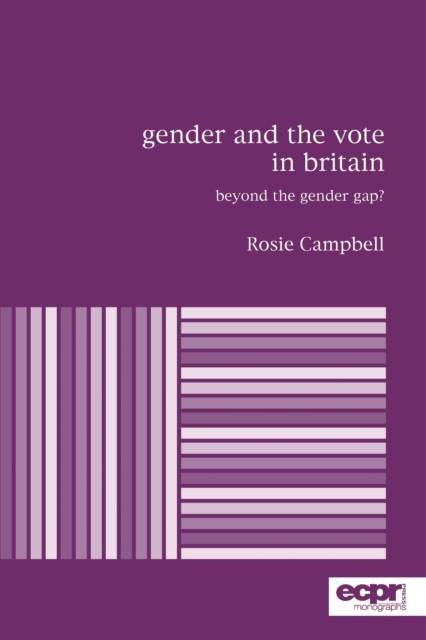
- Afhalen na 1 uur in een winkel met voorraad
- Gratis thuislevering in België vanaf € 30
- Ruim aanbod met 7 miljoen producten
- Afhalen na 1 uur in een winkel met voorraad
- Gratis thuislevering in België vanaf € 30
- Ruim aanbod met 7 miljoen producten
Zoeken
Omschrijving
The 2005 British general election witnessed unprecedented media interest in the parties' attempts to 'woo' women voters. There was much speculation about a fracturing relationship between women and Tony Blair, the term 'let-down woman' was used by the press to describe how the relationship had allegedly gone sour. Gender and Vote in Britain provides comprehensive analysis of the 1992-2005 British general elections and tests whether there were, in fact, sex differences in leadership evaluations, party of vote and political attitudes. The interactions between sex, age, class, race, and education are examined and gender effects are understood as tectonic plates that will shift and change according to the specific context of a given election. Thus, the argument of the book is that background or sociodemographic characteristics play an important role in electoral choice but that their impact is mitigated by other factors, such as issue salience. For example gender may impact upon political attitudes, so that more women than men prioritise spending on health or education, but this will only translate into voting behaviour if the political parties diverge on these issues.
Specificaties
Betrokkenen
- Auteur(s):
- Uitgeverij:
Inhoud
- Aantal bladzijden:
- 168
- Taal:
- Engels
- Reeks:
Eigenschappen
- Productcode (EAN):
- 9780954796693
- Verschijningsdatum:
- 1/01/2006
- Uitvoering:
- Paperback
- Formaat:
- Trade paperback (VS)
- Afmetingen:
- 160 mm x 233 mm
- Gewicht:
- 331 g

Alleen bij Standaard Boekhandel
+ 122 punten op je klantenkaart van Standaard Boekhandel
Beoordelingen
We publiceren alleen reviews die voldoen aan de voorwaarden voor reviews. Bekijk onze voorwaarden voor reviews.











